2021
Microphysiological system to advance adoptive cell therapy

Adoptive cell therapy has emerged as promising cancer treatment in recent years. Despite its advantages, clinical applications of this patient-specific therapy face, however, many challenges. A novel microfluidic platform, developed by the group of Andreas Hierlemann in collaboration with members from Timm Schroeder’s group, helps to improve the process of identifying potent anti-tumour immune cells and their corresponding targets, bridging the gap between in-vitro and in-vivo studies.
Examining systematically how spatial structure influences tumour evolution
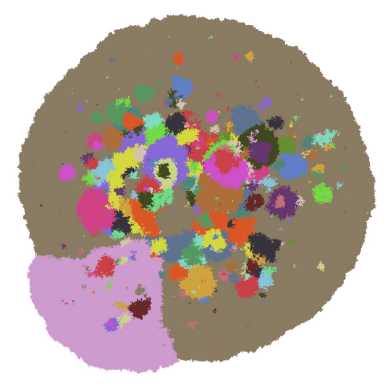
Using computer model simulations that were compared to actual clinical data for various cancer types, researchers from the group of Niko Beerenwinkel and colleagues gained new insights into why human cancers develop in such diverse ways. Characterising the way, manner or pattern of evolution in tumours is important for clinical forecasting and optimising cancer treatment, the authors say in their new study in Nature Ecology & Evolution.
Excellent work and research environment at lab of Andreas Hierlemann
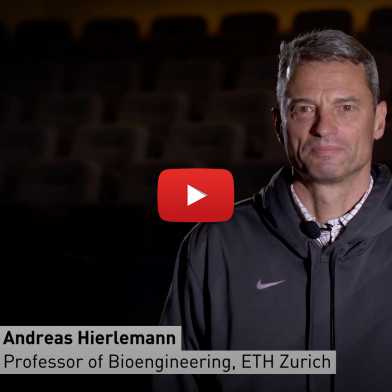
Great honour for the head of the Bio Engineering Laboratory: his research group nominated Andreas Hierlemann for the ALEA award 2021, which honours leaders at ETH Zurich who enable advanced and innovative working conditions and who promote and support actively the reconciliation of work, family and avocational engagement. The award is presented by AVETH, the Academic Association of Scientific Staff at ETH Zurich, ETH Diversity and HR.
Understanding intra-tumour heterogeneity paves the way for personalised oncology
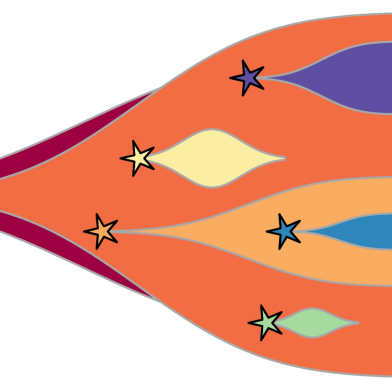
Mutations in tumour cells followed by their proliferation lead to intra-tumour heterogeneity. During the evolution of the tumour, cells interact with one another, influencing the progression of the disease and the success of tumour treatment. A novel statistical tool developed by Jack Kuipers and other researchers from the group of Niko Beerenwinkel together with colleagues from the Universities of Zurich and Texas now helps identify those pairs of mutated genes interacting across cells.
Estimating the R-value of coronavirus from wastewater
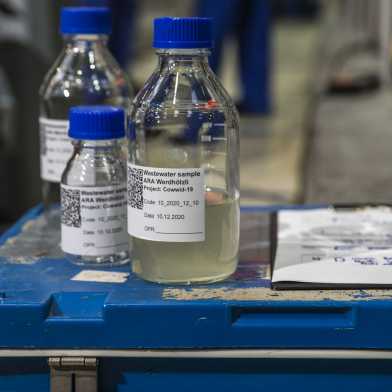
The R-value, i.e. the reproductive number of SARS-CoV-2, is a valuable parameter for public health officials when monitoring the dynamic and spread of the COVID-19 pandemic. This value is typically based on clinical data. A new study led by Tanja Stadler’s group in collaboration with researchers from Eawag and ETH Lausanne now demonstrates with field data from Zurich and San Jose, CA, USA that the R-value can also be estimated from wastewater - with great precision, quickly and cost-effectively.
CoVMass testing station at D-BSSE
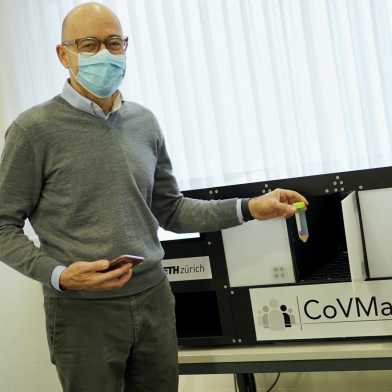
PCR saliva tests are now available at D-BSSE! As part of the ETH Zurich CoVMass testing strategy, ETH members can now be tested for COVID-19 at the new test station installed at the lobby on Mattenstrasse 26 in Basel. Simply register, pick up your testkit, sample at home, drop off your sample and get the result - for a safe working and learning environment.
New building in Basel ready for occupancy in the second half of 2022
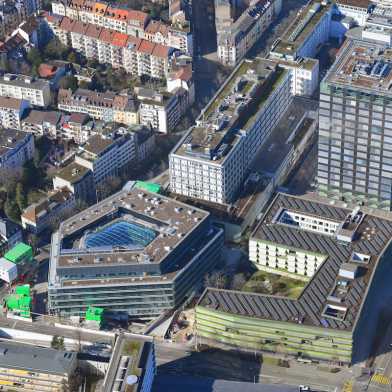
ETH Zurich’s Department of Biosystems Science and Engineering has been operational in Basel since 2007. The move into the new building on the Schällemätteli site is a long-awaited step that will bring together all the department’s research groups under one roof and in close proximity to various important life sciences partners. Due to construction delays, the opening of the new building has been postponed to the second half of 2022.
ETH Silver Medal presentations on 21 December, 11AM

D-BSSE members are invited to this year's ETH Silver Medal presentations on 21 December, 11AM, via Zoom. We have four candidates who will for sure value a large attendance. The ETH Medal honours outstanding Master's theses. The dial-in information has been sent to D-BSSE members by email and outlook invite.
Exploring T-cell memory in COVID-19 recovered patients
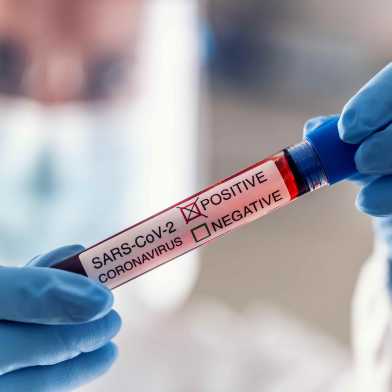
Memory T cells play a key role in long-term immunity. In a study by the Boyman-group, University of Zurich, and Andreas Moor, D-BSSE Systems Physiology lab, researchers explored the characteristics of SARS-CoV-2 specific T cells isolated from convalescent patients for up to one year after infection. Using flow cytometry and single cell RNA sequencing, they track T cell clones over time and find specific signatures on a subset of T cells, which are associated with long-lived memory.
Spinoff deepCDR Biologics acquired by Boston-based company Alloy Therapeutics
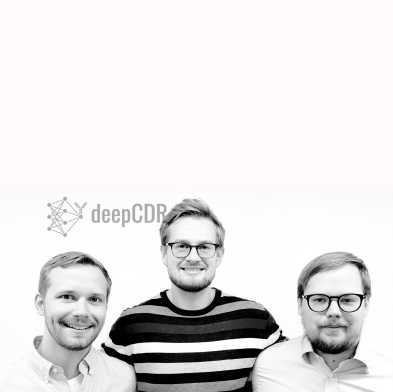
The D-BSSE spinoff deepCDR Biologics, which originated from the Laboratory of Systems and Synthetic Immunology of Sai Reddy, has become part of Alloy Therapeutics, a biotechnology company specialised in antibody drug discovery. The acquisition of deepCDR will add expertise in bioinformatics and machine learning to Alloy’s antibody discovery process and workflow. The deepCDR team will remain in Basel and will turn into a permanent Alloy research site.